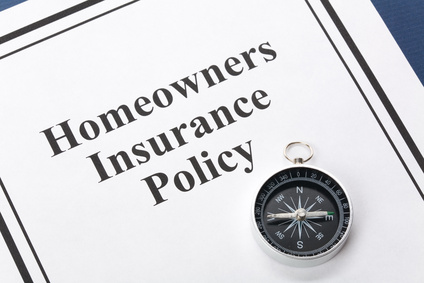As unlikely as it seems that those events we see on TV such fires, thefts, hurricanes can happen to us, the truth is that disaster can strike anyone at any time. That’s why it’s best to be prepared for anything, and this includes purchasing homeowners insurance to protect your home and everything in it. Standard New Jersey homeowners insurance is meant to provide protection in the event of a fire, burglary, or other loss, and is recommended for everyone who owns a home.
However, a standard policy does not not necessarily cover all damages or events; certain circumstances may not provide you relief if your home is damaged, and thus it is important to know how to protect yourself in advance. Read on to learn about the five circumstances your New Jersey homeowners insurance policy may not cover, and what you can do to get coverage.
1. Flooding
Although you can receive coverage against damages from severe wind and rains to your main buildings, a standard policy does not cover flood damage. This includes flooding caused by a hurricane or other severe storm. Cleaning up after a flood is expensive, as you will have to replace all floors and possibly conduct repairs on your home’s foundations; this makes it all the more crucial to have insurance coverage for flood damage.
You can sign up for flood insurance coverage with the National Flood Insurance Program (NFIP), which offers insurance for certain communities that follow federal guidelines for flood prevention. This is especially recommended if you live in an area that is prone to hurricanes or severe storms.
2. Sewer backup
A sewer backup can be caused by a number of factors such as old or defective sewer pipes, tree root blockage, or basement flooding; it results in sewage overflow and can cause damage to floors, toilets, and even the house foundation. Unfortunately, most standard policies do not cover sewage backup, which means you will have to pay for repairs out of pocket.
The best way to cover your home is to invest in sewage backup prevention, such as by installing a backwater prevention valve. You can also purchase coverage by contacting your insurance agent; usually, a limited endorsement of up to $5,000 is available.
3. Home based business
If you run a business from inside your home, take extra precautions to make sure that it does not cause damage to your house or property; a standard policy does not cover damages caused by a home-based business, which means that if your home is broken into and your merchandise is stolen, your insurance will not reimburse you for your losses.
You can purchase business insurance separately from your homeowners insurance; this is highly recommended for all business owners, especially those whose products or assets are at risk of theft or damage. You can purchase different policies depending on how much your merchandise is worth or what you stand to lose.
4. Loss of animals, birds, or fish
Whether you own cats, dogs, or livestock, a standard homeowners insurance policy will not cover their loss in the event of a fire, storm, or other natural disaster, nor will it provide compensation for stolen animals. This can be especially devastating if you own livestock or purebred varieties of animals.
To obtain insurance, you can purchase animal and livestock mortality insurance separately from your standard policy; this provides coverage in case of death due to accident, injury, sickness, and disease, as well as theft. Value is assessed based on the talent or genetics of the animals. You can also purchase limited coverage that is only payable in the event of death due to a listed cause, including fire, lightning, windstorm, hail, transportation, accidental shooting, or drowning, as well as theft.
5. Watercraft
An insurance policy may cover small motorboats or sailboats, but all policies differ, and in general a standard policy will not insure larger watercraft. This can be problematic if your boat is stolen or damaged in a fire or storm, or if you are injured while on your watercraft; you do not want to be left having to pay for damages, or buying a replacement boat, if your insurance policy does not provide you with coverage. Check with your insurance agent to determine exactly what your policy covers.
To protect your watercraft, you can purchase boat insurance separately from homeowners insurance; most policies are flexible depending on the size of the craft and what it is used for, and you can obtain coverage for the boat, motor, trailer, any medical expenses, as well as new boat replacement. Like with auto insurance, a good driving record will lower your premium, and the navigation area can also affect the cost of your insurance.
Thank you for reading our blog! How can we help you? Contact us today.



